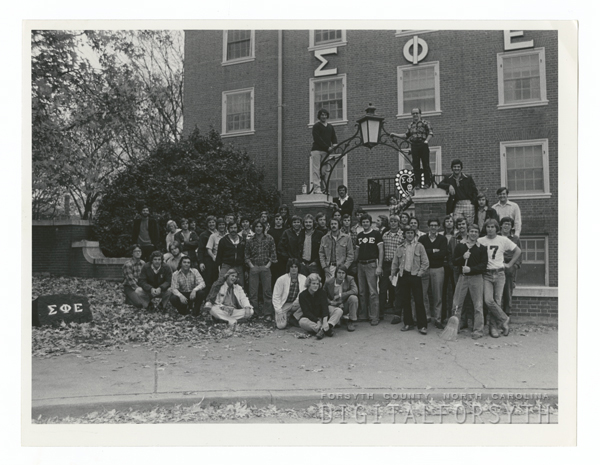History
Fraternity and sorority life has been a longstanding tradition at Wake Forest since the late 1800s when Kappa Alpha Order was established. Permanently recognized by the faculty in 1922, fraternities served as an outlet for social life and intellectual advancement. Experiencing waves on involvement throughout the decades, Wake Forest is now home to twelve social fraternities.
In 1948, the first local society for women was formed, known as Strings. While local societies were not recognized by the faculty for the first 15 years of their existence, they too served as an outlet for social and intellectual growth. With a booming population by the early 90s, the Intersorority Council voted to join with inter/national sororities from the National Panhellenic Council. This resulted in a sweeping transition from local societies to national sororities in 1993. Wake Forest is now home to eight social sororities.
In 1975, Omega Psi Phi Fraternity, Inc. opened as the first historically African American fraternity on campus. Delta Sigma Theta Sorority, Inc. followed in 1988, establishing the National Pan-Hellenic Council. Historically African American fraternities and sororities served as a place of empowerment, identity development, social and intellectual development. Providing these same outlets today, Wake Forest is now home to five NPHC fraternities and sororities.
In 2011 Wake Forest was excited to welcome Delta Xi Phi Multicultural Sorority, Inc. to the community. Similar to NPHC organizations, multicultural organizations serve as an opportunity for identity exploration, empowerment, social and intellectual growth for their members. Wake Forest is home to one multicultural sorority.

